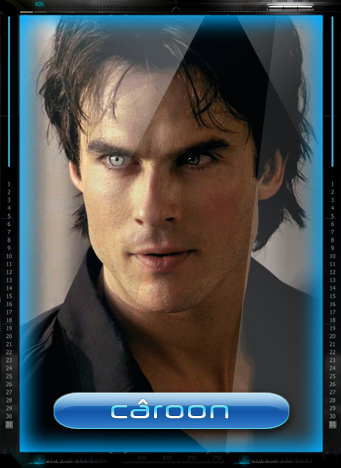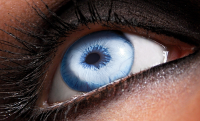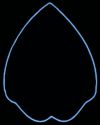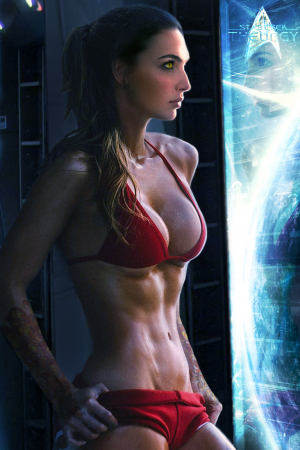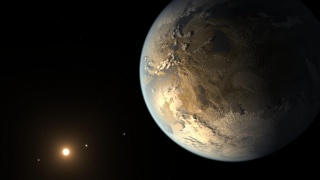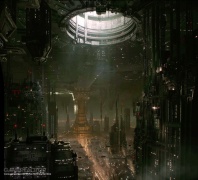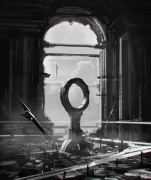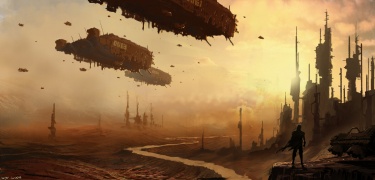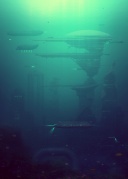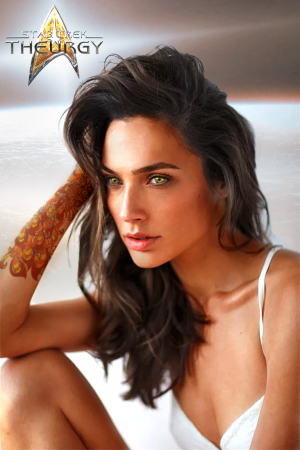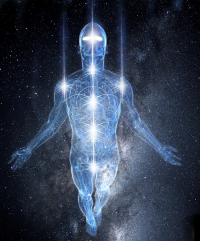Câroon: Difference between revisions
From Star Trek: Theurgy Wiki
m (→Special Notes) |
Auctor Lucan (talk | contribs) No edit summary |
||
| (18 intermediate revisions by 3 users not shown) | |||
| Line 1: | Line 1: | ||
[[File:CAROONFRAME.png|right| | [[File:CAROONFRAME.png|right|thumb|350px|Câroon characters in Star Trek: Theurgy: | ||
The '''Câroon''' | <DynamicPageList> | ||
category = Câroon | |||
</DynamicPageList>]] | |||
The '''Câroon''' were a tough people of survivors that developed limited control over the elemental forces around them, but even more limited when away from the extreme conditions of their home planet. The planet of Câroon was the source of their abilities, and they became dependent on the link they held to it. They were best distinguished from humans through their exotic physical appearance, the tattoos on their forearms and hands, and the coloring of their eyes with their subtly unique irises. | |||
Their health depended on the balanced state of the seven energy centers - the <i>"zi'naaq"</i> - inside their bodies, and if unbalanced, they died. Furthermore, the <i>zi'naaq</i> inside their bodies lit up when they manipulated the elements around them - making light shine through their eyes and mouths when they did so. All in all, they were a hardened species of survivors that suffered the conditions of their dear planet for millennia. | |||
== Physiology == | == Physiology == | ||
The Region they were born to largely | The Region they were born to largely determined the physical traits of each Câroon. Generally speaking, they were a humanoid race, although those of the Wind Region were smaller than the average [[human]], and even smaller than the other Câroon. Those of the Water Region tended to be taller than the average [[human]] while the Earth and Fire Regions were of average [[human]] height. Furthermore, they looked like people who suffered extreme weather, with tough, bronze-colored skin and unkempt hair. Another difference from the [[human]] species was that the muscle tone of the Câroon was notably developed. At first, one might've thought that it was a higher metabolism that explained the lean bodies of the Câroon, but it was actually an effect of their heightened awareness and control of the seven energy centers in their bodies. Their psionic ability of controlling the elemental energy that flowed around them was a secondary effect to their method of surviving the harsh conditions on Câroon. For more information, see "Special Notes". | ||
[[File:Câroon-Eye.png|left | [[File:Câroon-Eye.png|left|200px]]Their extraordinary eye colors were also tied to the different Regions, and were perhaps the most noticeable trait that stood out in comparison to humans. Besides the extraordinary coloring, close inspection of the iris clearly showed differing texture: | ||
Those of the Earth Region in the subterranean cities | Those of the Earth Region, in the subterranean cities, had eyes ranging between brown, green, and teal. The Water Regioneers had light blue eyes ranging to bright turquoise. The Wind Regioneers in the mountains had grey eyes in all shades between white and black, and the people of the deserts in the Fire Region all had yellow, red, and orange shades to their irises. Regardless of color, their eyes all emitted a shining white light when they accessed their energy centers and touched the elements around them. The light even shined through their mouths if they spoke. In darkness, and if their bodies were bare when this was done, the seven <i>zi'naaq</i> could even be discerned as orbs of light inside their bodies - the bright light seen through the skin and outlining their spines. | ||
The backs of their hands | The backs of their hands were all tattooed in whirling patterns customary to their Regions and the cities/settlements they were born. The patterns that are inked, with colors made from the ores of their individual Regions, were a symbol of coming of age - given to them at the age of sixteen. The tattoos were natively called the <i>gadd</i>. | ||
[[File:Câroon-Penis.png|right | [[File:Câroon-Penis.png|right|100px]]The reproductive system of the Câroon was greatly similar to that of humans; an external phallus and an internal clitoris. However, the shape was slightly different due to the different evolutionary paths they took on their weather-dominant planet. The male penis had an identical shaft section to a [[human]], the only differences being the slightly larger dimensions of Câroons. However, the glans featured a more petal-like shape than mushroom, with a more pointed end, and urethra slightly under the head instead of the tip. | ||
This | This physical attribute was favored due to its resilience during extreme weather conditions, increasing the surface area of contact with vaginal walls. The two symmetrical, round lobes extending from the start of the glans allowed the penis to latch on with greater ability. They formed a sort of suction while engaging in intercourse, creating a watertight seal if there should be flooding or extreme storms. Two [[human]]-like testes were located in a sack underneath the penis. The vagina featured three chambers within the clitoris, allowing semen to become trapped much easier. The uterus and ovaries seemed indistinguishable from humans, but in actuality were very complex organs. The rapid cellular regrowth in these structures allowed for a much more stable struggle for homeostasis. Impregnated Câroon could withstand extreme heat or cold, with their fetuses remaining at a constant, optimal temperature. | ||
== Psychology == | == Psychology == | ||
[[File:Sera-vers-Aldnoah-02.png|left | [[File:Sera-vers-Aldnoah-02.png|left|300px]] | ||
Psychologically, the Câroon race | Psychologically, the Câroon race was quite [[human]], yet far more accentuated. Their emotions tended to be more intense; pronounced to the extreme side of the spectrum. Moreover, the personality traits of the Câroon individual were largely determined by the Region of their birth and the influence of the elements they had an affinity for. If one might generalize crudely, then those born in the Fire Regions - the deserts - had terrible tempers and a history of domestic war. The Wind Regioneers of the mountains tended to be like the changes of the wind, with both squalls of wild whether and the gentle caress of the breeze, but they valued unhindered freedom over everything else. Those from the oceans of the Water Region tended to be very halcyon, silent when content, whispering when curiously dampening new shores of discovery yet still able to deal crushing force when heaving with anger. Like the sea was an ancient graveyard, they hide their secrets well, and complete order defined their society. Those of the Earth Region were efficient people, industrial in their toil to build their underground cities - sharp wit and sharp stone. Idleness and weakness were not tolerated, inefficiency was a crime, and if threatened, they made the ground heave in answer. | ||
However, if their energy | However, if their energy centers - their <i>zi'naaq</i> - were unbalanced, the throes of their emotions could actually have killed them. Both their mental and bodily health depended on the balanced state of the <i>zi'naaq</i> and if they tried to manipulate the elements in such an unbalanced state, they could have actually died of self-combustion. In Câroon society, great efforts and funds were put into the cause of protecting themselves from such dangers. This through methods of meditation and techniques to exert their emotions in ways less harmful to themselves and the people around them. | ||
Their affinity | Their affinity for controlling the elements of their home planet came from the planet itself, and it was an evolutionary development over millions of years. Likewise, if removed from the planet of Câroon, their abilities and the psychological traits of the elements lessened over the years. The extreme facets of their different tempers and emotions diminished as well. Touching the elements around them would become harder, and in some cases, Câroon felt as if they had lost their souls if not returned to their native planet. The loss of self-esteem occurred, and even if it was overcome, the desire to return to their planet some day always prevailed. The bond to Câroon and the gifts it bestowed upon its people was a very strong link, and it never truly broke. | ||
Because of the Câroon immunity towards empathic and telepathic abilities, they | Because of the Câroon immunity towards empathic and telepathic abilities, they considered such attempts equivalent to rape. Yet because of their immunity, however, they didn't feel the need to make laws that forbade and punished such futile attempts upon their own, but that did not make it any less frowned upon when it was observed happening to other species. | ||
== Language == | == Language == | ||
Humans have spoken languages and body languages. Other species also | Humans have spoken languages and body languages. Other species also communicated through less complex systems such as chemicals (like Earth's insects and plants) because they ascended via different evolutionary paths. Taste, touch, smell, [[telepathy]], or electric impulses were equally possible. Therefore, trying to describe verbal speech to a scent-speaker or a telepath was difficult. In the case of the Câroon, they had a deeply symbiotic relationship with their planet, but it was not explained in their spoken words - only tangible through the energy that flowed through their bodies. | ||
Their spoken language - for when they speak to each other - also | Their spoken language - for when they speak to each other - also bore the name of their planet, and did not have the same kind of syntax, word structures, or grammatical elements as other species did. The language of Câroon was, however, sequenced into [[Starfleet]]'s universal translators, and the filtered result rendered them to speak in an exotic version of British - an accent of [[Federation]] Standard. | ||
== Home World == | == Home World == | ||
Câroon - the first planet in orbit of the star Roona in the Roon System - | Câroon - the first planet in orbit of the star Roona in the Roon System - was not very hospitable to visitors. The planet's very nature was one of extremes. The deserts were blistering hot with raging wildfires in the grass tundra. The mountains towered over the clouds and the air became thin and freezing cold. The water systems were vast and could either be exceptionally calm or particularly violent, without much in-between. The depths of the earth were dark and the earthquakes forced many cities to rebuild. Volcanic eruptions filled the tunnels with lava, poured down the mountains, and raised tsunamis across the seas. | ||
It was not fully understood by the [[Federation]] what forces occurred on the planet to cause such strong effects on both the planet's surface and its inhabitants, but the effects were unmistakable. | |||
<gallery mode="packed"> | |||
File:Câroon.jpg|Câroon <sub><br>(Image by [https://www.nasa.gov/press/2015/january/nasa-s-kepler-marks-1000th-exoplanet-discovery-uncovers-more-small-worlds-in NASA])</sub> | |||
File:Earth Region.jpg|Earth Region city <sub><br>(Image by [https://www.gamereactor.se/nyheter/130004/Konceptbilder+fran+Star+Wars+1313/ Gustavo Mendonca])</sub> | |||
File:Envon, Wind Region.jpg|Wind Region city <sub><br>(Image by [https://www.artstation.com/artist/emanshiu Emmanuel Shiu])</sub> | |||
File:Fire Region.jpg|Fire Region city <sub><br>(Image by [http://5ofnovember.deviantart.com/ Filip Dudek])</sub> | |||
File:Water Region.jpg|Water Region city <sub><br>(Image by [https://www.behance.net/zamenabatareek Evgeny Kazantsev])</sub> | |||
</gallery> | |||
== Culture & Customs == | == Culture & Customs == | ||
[[File:Dr-Nicander-04.png|right | [[File:Dr-Nicander-04.png|right|300px]] | ||
The Câroon hailing from the Wind Region | The Câroon hailing from the Wind Region preferred to not use any footwear - merely donning loose coats and a pair of wide-ankled slacks in the colors of their nation. The lack of footwear was a homage to their planet's soil that survived despite the lack of any current religious beliefs - the need for protective clothing fallen away with their developed affinity with the elements. Therefore, it was only natural that the Câroon who served in [[Starfleet]] felt the uniform suffocating and the shoes an instrument of torture. | ||
Earth Regioneers, however, | Earth Regioneers, however, wore slightly different clothing. With lush flora and fauna, and a diverse assortment of rich rocks and minerals, masterful dyes with artistic fabrics were created in the many factories scattered around the landscape. These beautiful textile products were found everywhere; in slim casual robes, formal robes, and even the Council’s thick uniform tunics. Vibrancy tended to be found in even the darkest of the most common colors, such as browns and tans, greens, and varying grays, all paying tribute to the holy ground the Câroon walked upon. | ||
Each Region | Each Region had its own customs, just like their <i>gadd</i> were different depending on where they hailed from. Their sayings and analogies often referred to the elements, and specifically the Regions where they hailed from. A Wind Regioneer may, for example have said, "By the winds...", "like a twist in the wind", "to sow the whirlwind you must start with the breeze" or "scatter it to the wind". | ||
Cities | Cities tended to rise and fall on the borders between Regions and inhabitants usually chose to congregate there for matters of study, technology, or for a few Câroon to experience wander-lust. Land rights were typically based on familial lines or mutual agreement. As population tended to be low in most Regions, there was generally a lot of land to go around. Each Câroon preferred to live their life as they wished, and so peace was generally not hard to maintain between Region natives. Worth mentioning was that the Fire Region tended to not get along well with the others, particularly the Water Regioneers - but this was for historical reasons which no one remembered. | ||
== History == | == History == | ||
The historical records of the Câroon people | The historical records of the Câroon people were lost repeatedly over the many millennia that they built and rebuilt their cities in defiance of the planet's unrest. It was uncertain if the cities would survive the soil upon which they were raised. Yet with each fall they suffered over the course of their planet's history, the Câroon learned and managed to fortify their constructions. | ||
Eventually, the Earth and Wind Regions became advanced enough for warp-field technology and space-fare, closely followed by the secretive Water Region. They initiated | Eventually, the Earth and Wind Regions became advanced enough for warp-field technology and space-fare, closely followed by the secretive Water Region. They initiated their own first contact with the surrounding star systems. First by communication only, and then they began branching out for trade treaties. In 2364, they encountered the [[Federation]] and a line of communication was opened, though they chose not to petition for membership. In 2369, the Fire Region launched their first space ships. | ||
As of 2381, Câroon | As of 2381, Câroon had still not joined the [[United Federation of Planets|Federation]], but were otherwise allied with them. The different Regions had agreements with various trading partners around them. Over the years, there were some Câroon who chose to leave their home planet to make a living off-world and some even joined [[Starfleet]], but most did not last. Câroon held a strong pull on its native world and most returned before long. | ||
== Government & Military == | == Government & Military == | ||
[[File:Sera-vers-Aldnoah-04.png|left | [[File:Sera-vers-Aldnoah-04.png|left|300px]] | ||
The Câroon generally | The Câroon generally had a volunteer military. It was convened only when it was needed. They were called together on a certain rotation for training, but otherwise, it was not a 'job' though the City Councils provided for wages and/or supplies to the member's family for the time spent training or fighting, if necessary. | ||
Legislation | Legislation was firm, much stronger in the Earth Region, with the exception of the Wind Region which was more focused on the rights of individuals to their freedom, but if evidence of crimes was found for a guilty verdict, Câroon justice was swift and in measure with the crime. There were some prisons, although execution was not uncommon in extreme cases. A very vital belief in the criminal justice department was the need for detaining all suspects to crime. However this governmental restraint was quickly lifted should there be any counter-evidence provided to the court. Past judiciary matters, the government mainly focused on the cities. Each Region was usually left to its own governing, but the cities are where those from all Regions came together and so the City Council saw to it that there were laws in place to protect each individual, particularly against customary/inter-region differences. | ||
== Technology == | == Technology == | ||
The Câroon | The Câroon developed a great deal of technology in their past, equaling the [[Federation]], but over the past century there was movement back to simpler living. Technology became almost exclusive to the large cities. Those interested in it moved there and the rest lived further away, surrounded by the nature of their dear planet. Their lives were considered 'quaint' or 'archaic' by modern [[Federation]] opinions, but they preferred to be in touch with the nature around them. | ||
Câroon | Câroon did not, however, shun technology. Most simply preferred to live with as little of it as possible - using only what each individual or family felt they need in their lives. Those who wished for more, moved to the cities. | ||
This | This was not a trait owned by the Earth Region, who instead focused on their industrious prosperity and required citizen involvement in City development. | ||
== Mythology == | == Mythology == | ||
Over the course of their long history of building and rebuilding in the wake of the planet's shifting conditions, the people of Câroon | Over the course of their long history of building and rebuilding in the wake of the planet's shifting conditions, the people of Câroon worshiped their planet's soul in many ways. Numerous religions came and went, all naming their planet in different ways and trying to quell its violent nature, but over time, the need for religions died away - leaving the people of Câroon in awe of their home world, but at peace with the fact that they were both depending on it and trying to survive it. The myths ceased to be spoken, and the cults died away. The acceptance of their planet's soul, the <i>zi'naaq</i> and the gifts they brought to them as a species sufficed. Nonetheless, scholars were still left in wonder as to how the formation of such a mysterious aura came to be — how the <i>zi’naaq</i> manifested itself in the people with its bond to the planet. | ||
== Special Notes == | == Special Notes == | ||
With great focus and mental effort, the Câroon | With great focus and mental effort, the Câroon could manipulate the elements around them - the four distinct elements of their planet: Air, Fire, Water, Earth. They could do this with any element they touched or got very close to. If they touched water, they could make waves, air could make a breeze or they could change the shape or size of a flame or make the ground shake. It tended to be very limited and short lived, requiring significant concentration. There were only two directions that the psionic energies of the elements could travel - outwards or inwards - and the seven <i>zi'naaq</i> funneled the direction in which they were absorbed and released. | ||
[[File:Câroon-Zi'naaq.png|left | [[File:Câroon-Zi'naaq.png|left|200px]]The <i>zi'naaq</i> ran parallel to the spine from the root <i>zi'naaq</i> at the base through to the crown <i>zi'naaq</i> on the top of the head, and with one <i>zi'naaq</i> in each shoulder. They formed a part of a subtle energy body, along with the energy channels extending from them all | ||
To be precise, two side channels | To be precise, two side channels crossed the center channel at the location of each <i>zi'naaq</i> - possessing a number of spokes. The activity of each <i>zi'naaq</i> was to receive and transmit the four energies within the Câroon body’s energy system. When admitting energy and releasing it, the seven <i>zi'naaq</i> became temporarily unbalanced, and by funneling too much energy, the Câroon could fall unconscious or even die. | ||
The word <i>"zi'naaq"</i> | The word <i>"zi'naaq"</i> was a Câroon term meaning a turning wheel or disk, and the effect of seven balanced <i>zi'naaq</i> resulted in one’s physical, mental, emotional, and spiritual centers working together in a balanced and harmonious manner. If one - or more - <i>zi'naaq</i> were under-active or over-active (too open or too closed for the energy flow] then the individual was out of balance. This would effect his or her physical, mental, and emotional centers. Manipulating the elements in such a state had the same effect as when trying to funnel too much energy. In short, if a Cârroon's energy body was out of balance, his or her real body took the toll. | ||
Historically, when the Câroon first found the abilities of their <i>zi'naaq</i>, the few surviving myths | Historically, when the Câroon first found the abilities of their <i>zi'naaq</i>, the few surviving myths said that some Câroon were able to use the elements on large scales, but no one with this strength was seen in centuries.Their ability of elemental manipulation was at its strongest on their home planet, although it did not go away completely if they left Câroon. It simply weakened, and the manipulation required a great deal more effort to achieve. | ||
[[United Federation of Planets|Federation]] scientists | [[United Federation of Planets|Federation]] scientists debated that the <i>zi'naaq</i> energy body - akin to the <i>chakras</i> of Earth's ancient tantric traditions among humans - had no proven relationship with the anatomy or physiology of the Câroon body. Nothing resembling the energy of the <i>zi'naaq</i> nor the <i>chakras</i> was ever detected, despite the exquisite sensitivity of modern instruments. All that was known was that the psionic energy of the <i>zi'naaq</i> only became visible when a Câroon manipulated the elements - showing on [[tricorder]] readings and even more plainly in how the light of the crown <i>zi'naaq</i> shown through their eyes. Yet as much of a mystery as the dormant <i>zi'naaq</i> was, nor could the [[Federation]] scientists explain "regular" psionic energy that was associated with [[telepathy]], so the elemental psionic powers of Câroon fell into the same unexplained category as the abilities of [[Vulcan]]. | ||
There | There was a last unique element to the Câroon species, although its source was not fully understood, but something in their neurological make-up made it impossible for the empathic and telepathic races to get a 'read' on them. Speculation held that the energy centers in their bodies disrupted the perception of their brain synapses, but no definitive answers were ever found. | ||
[[Category:Races]] | |||
Latest revision as of 20:38, 16 September 2017
The Câroon were a tough people of survivors that developed limited control over the elemental forces around them, but even more limited when away from the extreme conditions of their home planet. The planet of Câroon was the source of their abilities, and they became dependent on the link they held to it. They were best distinguished from humans through their exotic physical appearance, the tattoos on their forearms and hands, and the coloring of their eyes with their subtly unique irises.
Their health depended on the balanced state of the seven energy centers - the "zi'naaq" - inside their bodies, and if unbalanced, they died. Furthermore, the zi'naaq inside their bodies lit up when they manipulated the elements around them - making light shine through their eyes and mouths when they did so. All in all, they were a hardened species of survivors that suffered the conditions of their dear planet for millennia.
Physiology
The Region they were born to largely determined the physical traits of each Câroon. Generally speaking, they were a humanoid race, although those of the Wind Region were smaller than the average human, and even smaller than the other Câroon. Those of the Water Region tended to be taller than the average human while the Earth and Fire Regions were of average human height. Furthermore, they looked like people who suffered extreme weather, with tough, bronze-colored skin and unkempt hair. Another difference from the human species was that the muscle tone of the Câroon was notably developed. At first, one might've thought that it was a higher metabolism that explained the lean bodies of the Câroon, but it was actually an effect of their heightened awareness and control of the seven energy centers in their bodies. Their psionic ability of controlling the elemental energy that flowed around them was a secondary effect to their method of surviving the harsh conditions on Câroon. For more information, see "Special Notes".
Their extraordinary eye colors were also tied to the different Regions, and were perhaps the most noticeable trait that stood out in comparison to humans. Besides the extraordinary coloring, close inspection of the iris clearly showed differing texture:
Those of the Earth Region, in the subterranean cities, had eyes ranging between brown, green, and teal. The Water Regioneers had light blue eyes ranging to bright turquoise. The Wind Regioneers in the mountains had grey eyes in all shades between white and black, and the people of the deserts in the Fire Region all had yellow, red, and orange shades to their irises. Regardless of color, their eyes all emitted a shining white light when they accessed their energy centers and touched the elements around them. The light even shined through their mouths if they spoke. In darkness, and if their bodies were bare when this was done, the seven zi'naaq could even be discerned as orbs of light inside their bodies - the bright light seen through the skin and outlining their spines.
The backs of their hands were all tattooed in whirling patterns customary to their Regions and the cities/settlements they were born. The patterns that are inked, with colors made from the ores of their individual Regions, were a symbol of coming of age - given to them at the age of sixteen. The tattoos were natively called the gadd.
The reproductive system of the Câroon was greatly similar to that of humans; an external phallus and an internal clitoris. However, the shape was slightly different due to the different evolutionary paths they took on their weather-dominant planet. The male penis had an identical shaft section to a human, the only differences being the slightly larger dimensions of Câroons. However, the glans featured a more petal-like shape than mushroom, with a more pointed end, and urethra slightly under the head instead of the tip.
This physical attribute was favored due to its resilience during extreme weather conditions, increasing the surface area of contact with vaginal walls. The two symmetrical, round lobes extending from the start of the glans allowed the penis to latch on with greater ability. They formed a sort of suction while engaging in intercourse, creating a watertight seal if there should be flooding or extreme storms. Two human-like testes were located in a sack underneath the penis. The vagina featured three chambers within the clitoris, allowing semen to become trapped much easier. The uterus and ovaries seemed indistinguishable from humans, but in actuality were very complex organs. The rapid cellular regrowth in these structures allowed for a much more stable struggle for homeostasis. Impregnated Câroon could withstand extreme heat or cold, with their fetuses remaining at a constant, optimal temperature.
Psychology
Psychologically, the Câroon race was quite human, yet far more accentuated. Their emotions tended to be more intense; pronounced to the extreme side of the spectrum. Moreover, the personality traits of the Câroon individual were largely determined by the Region of their birth and the influence of the elements they had an affinity for. If one might generalize crudely, then those born in the Fire Regions - the deserts - had terrible tempers and a history of domestic war. The Wind Regioneers of the mountains tended to be like the changes of the wind, with both squalls of wild whether and the gentle caress of the breeze, but they valued unhindered freedom over everything else. Those from the oceans of the Water Region tended to be very halcyon, silent when content, whispering when curiously dampening new shores of discovery yet still able to deal crushing force when heaving with anger. Like the sea was an ancient graveyard, they hide their secrets well, and complete order defined their society. Those of the Earth Region were efficient people, industrial in their toil to build their underground cities - sharp wit and sharp stone. Idleness and weakness were not tolerated, inefficiency was a crime, and if threatened, they made the ground heave in answer.
However, if their energy centers - their zi'naaq - were unbalanced, the throes of their emotions could actually have killed them. Both their mental and bodily health depended on the balanced state of the zi'naaq and if they tried to manipulate the elements in such an unbalanced state, they could have actually died of self-combustion. In Câroon society, great efforts and funds were put into the cause of protecting themselves from such dangers. This through methods of meditation and techniques to exert their emotions in ways less harmful to themselves and the people around them.
Their affinity for controlling the elements of their home planet came from the planet itself, and it was an evolutionary development over millions of years. Likewise, if removed from the planet of Câroon, their abilities and the psychological traits of the elements lessened over the years. The extreme facets of their different tempers and emotions diminished as well. Touching the elements around them would become harder, and in some cases, Câroon felt as if they had lost their souls if not returned to their native planet. The loss of self-esteem occurred, and even if it was overcome, the desire to return to their planet some day always prevailed. The bond to Câroon and the gifts it bestowed upon its people was a very strong link, and it never truly broke.
Because of the Câroon immunity towards empathic and telepathic abilities, they considered such attempts equivalent to rape. Yet because of their immunity, however, they didn't feel the need to make laws that forbade and punished such futile attempts upon their own, but that did not make it any less frowned upon when it was observed happening to other species.
Language
Humans have spoken languages and body languages. Other species also communicated through less complex systems such as chemicals (like Earth's insects and plants) because they ascended via different evolutionary paths. Taste, touch, smell, telepathy, or electric impulses were equally possible. Therefore, trying to describe verbal speech to a scent-speaker or a telepath was difficult. In the case of the Câroon, they had a deeply symbiotic relationship with their planet, but it was not explained in their spoken words - only tangible through the energy that flowed through their bodies.
Their spoken language - for when they speak to each other - also bore the name of their planet, and did not have the same kind of syntax, word structures, or grammatical elements as other species did. The language of Câroon was, however, sequenced into Starfleet's universal translators, and the filtered result rendered them to speak in an exotic version of British - an accent of Federation Standard.
Home World
Câroon - the first planet in orbit of the star Roona in the Roon System - was not very hospitable to visitors. The planet's very nature was one of extremes. The deserts were blistering hot with raging wildfires in the grass tundra. The mountains towered over the clouds and the air became thin and freezing cold. The water systems were vast and could either be exceptionally calm or particularly violent, without much in-between. The depths of the earth were dark and the earthquakes forced many cities to rebuild. Volcanic eruptions filled the tunnels with lava, poured down the mountains, and raised tsunamis across the seas.
It was not fully understood by the Federation what forces occurred on the planet to cause such strong effects on both the planet's surface and its inhabitants, but the effects were unmistakable.
Câroon
(Image by NASA)Earth Region city
(Image by Gustavo Mendonca)Wind Region city
(Image by Emmanuel Shiu)Fire Region city
(Image by Filip Dudek)Water Region city
(Image by Evgeny Kazantsev)
Culture & Customs
The Câroon hailing from the Wind Region preferred to not use any footwear - merely donning loose coats and a pair of wide-ankled slacks in the colors of their nation. The lack of footwear was a homage to their planet's soil that survived despite the lack of any current religious beliefs - the need for protective clothing fallen away with their developed affinity with the elements. Therefore, it was only natural that the Câroon who served in Starfleet felt the uniform suffocating and the shoes an instrument of torture.
Earth Regioneers, however, wore slightly different clothing. With lush flora and fauna, and a diverse assortment of rich rocks and minerals, masterful dyes with artistic fabrics were created in the many factories scattered around the landscape. These beautiful textile products were found everywhere; in slim casual robes, formal robes, and even the Council’s thick uniform tunics. Vibrancy tended to be found in even the darkest of the most common colors, such as browns and tans, greens, and varying grays, all paying tribute to the holy ground the Câroon walked upon.
Each Region had its own customs, just like their gadd were different depending on where they hailed from. Their sayings and analogies often referred to the elements, and specifically the Regions where they hailed from. A Wind Regioneer may, for example have said, "By the winds...", "like a twist in the wind", "to sow the whirlwind you must start with the breeze" or "scatter it to the wind".
Cities tended to rise and fall on the borders between Regions and inhabitants usually chose to congregate there for matters of study, technology, or for a few Câroon to experience wander-lust. Land rights were typically based on familial lines or mutual agreement. As population tended to be low in most Regions, there was generally a lot of land to go around. Each Câroon preferred to live their life as they wished, and so peace was generally not hard to maintain between Region natives. Worth mentioning was that the Fire Region tended to not get along well with the others, particularly the Water Regioneers - but this was for historical reasons which no one remembered.
History
The historical records of the Câroon people were lost repeatedly over the many millennia that they built and rebuilt their cities in defiance of the planet's unrest. It was uncertain if the cities would survive the soil upon which they were raised. Yet with each fall they suffered over the course of their planet's history, the Câroon learned and managed to fortify their constructions.
Eventually, the Earth and Wind Regions became advanced enough for warp-field technology and space-fare, closely followed by the secretive Water Region. They initiated their own first contact with the surrounding star systems. First by communication only, and then they began branching out for trade treaties. In 2364, they encountered the Federation and a line of communication was opened, though they chose not to petition for membership. In 2369, the Fire Region launched their first space ships.
As of 2381, Câroon had still not joined the Federation, but were otherwise allied with them. The different Regions had agreements with various trading partners around them. Over the years, there were some Câroon who chose to leave their home planet to make a living off-world and some even joined Starfleet, but most did not last. Câroon held a strong pull on its native world and most returned before long.
Government & Military
The Câroon generally had a volunteer military. It was convened only when it was needed. They were called together on a certain rotation for training, but otherwise, it was not a 'job' though the City Councils provided for wages and/or supplies to the member's family for the time spent training or fighting, if necessary.
Legislation was firm, much stronger in the Earth Region, with the exception of the Wind Region which was more focused on the rights of individuals to their freedom, but if evidence of crimes was found for a guilty verdict, Câroon justice was swift and in measure with the crime. There were some prisons, although execution was not uncommon in extreme cases. A very vital belief in the criminal justice department was the need for detaining all suspects to crime. However this governmental restraint was quickly lifted should there be any counter-evidence provided to the court. Past judiciary matters, the government mainly focused on the cities. Each Region was usually left to its own governing, but the cities are where those from all Regions came together and so the City Council saw to it that there were laws in place to protect each individual, particularly against customary/inter-region differences.
Technology
The Câroon developed a great deal of technology in their past, equaling the Federation, but over the past century there was movement back to simpler living. Technology became almost exclusive to the large cities. Those interested in it moved there and the rest lived further away, surrounded by the nature of their dear planet. Their lives were considered 'quaint' or 'archaic' by modern Federation opinions, but they preferred to be in touch with the nature around them.
Câroon did not, however, shun technology. Most simply preferred to live with as little of it as possible - using only what each individual or family felt they need in their lives. Those who wished for more, moved to the cities.
This was not a trait owned by the Earth Region, who instead focused on their industrious prosperity and required citizen involvement in City development.
Mythology
Over the course of their long history of building and rebuilding in the wake of the planet's shifting conditions, the people of Câroon worshiped their planet's soul in many ways. Numerous religions came and went, all naming their planet in different ways and trying to quell its violent nature, but over time, the need for religions died away - leaving the people of Câroon in awe of their home world, but at peace with the fact that they were both depending on it and trying to survive it. The myths ceased to be spoken, and the cults died away. The acceptance of their planet's soul, the zi'naaq and the gifts they brought to them as a species sufficed. Nonetheless, scholars were still left in wonder as to how the formation of such a mysterious aura came to be — how the zi’naaq manifested itself in the people with its bond to the planet.
Special Notes
With great focus and mental effort, the Câroon could manipulate the elements around them - the four distinct elements of their planet: Air, Fire, Water, Earth. They could do this with any element they touched or got very close to. If they touched water, they could make waves, air could make a breeze or they could change the shape or size of a flame or make the ground shake. It tended to be very limited and short lived, requiring significant concentration. There were only two directions that the psionic energies of the elements could travel - outwards or inwards - and the seven zi'naaq funneled the direction in which they were absorbed and released.
The zi'naaq ran parallel to the spine from the root zi'naaq at the base through to the crown zi'naaq on the top of the head, and with one zi'naaq in each shoulder. They formed a part of a subtle energy body, along with the energy channels extending from them all
To be precise, two side channels crossed the center channel at the location of each zi'naaq - possessing a number of spokes. The activity of each zi'naaq was to receive and transmit the four energies within the Câroon body’s energy system. When admitting energy and releasing it, the seven zi'naaq became temporarily unbalanced, and by funneling too much energy, the Câroon could fall unconscious or even die.
The word "zi'naaq" was a Câroon term meaning a turning wheel or disk, and the effect of seven balanced zi'naaq resulted in one’s physical, mental, emotional, and spiritual centers working together in a balanced and harmonious manner. If one - or more - zi'naaq were under-active or over-active (too open or too closed for the energy flow] then the individual was out of balance. This would effect his or her physical, mental, and emotional centers. Manipulating the elements in such a state had the same effect as when trying to funnel too much energy. In short, if a Cârroon's energy body was out of balance, his or her real body took the toll.
Historically, when the Câroon first found the abilities of their zi'naaq, the few surviving myths said that some Câroon were able to use the elements on large scales, but no one with this strength was seen in centuries.Their ability of elemental manipulation was at its strongest on their home planet, although it did not go away completely if they left Câroon. It simply weakened, and the manipulation required a great deal more effort to achieve.
Federation scientists debated that the zi'naaq energy body - akin to the chakras of Earth's ancient tantric traditions among humans - had no proven relationship with the anatomy or physiology of the Câroon body. Nothing resembling the energy of the zi'naaq nor the chakras was ever detected, despite the exquisite sensitivity of modern instruments. All that was known was that the psionic energy of the zi'naaq only became visible when a Câroon manipulated the elements - showing on tricorder readings and even more plainly in how the light of the crown zi'naaq shown through their eyes. Yet as much of a mystery as the dormant zi'naaq was, nor could the Federation scientists explain "regular" psionic energy that was associated with telepathy, so the elemental psionic powers of Câroon fell into the same unexplained category as the abilities of Vulcan.
There was a last unique element to the Câroon species, although its source was not fully understood, but something in their neurological make-up made it impossible for the empathic and telepathic races to get a 'read' on them. Speculation held that the energy centers in their bodies disrupted the perception of their brain synapses, but no definitive answers were ever found.
